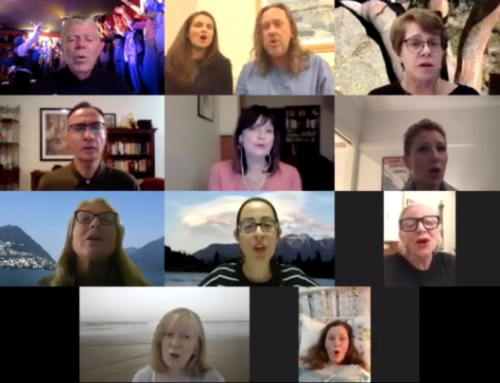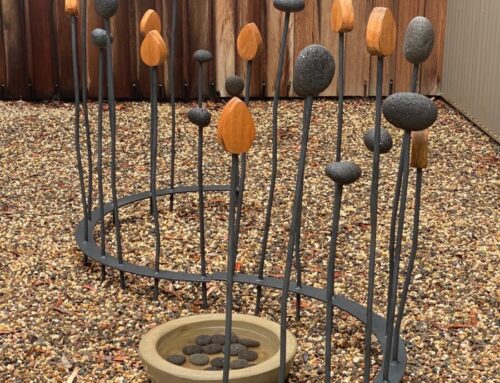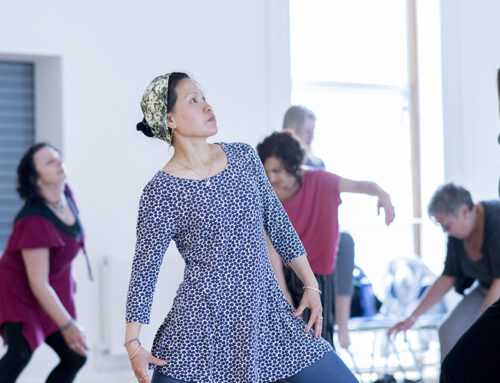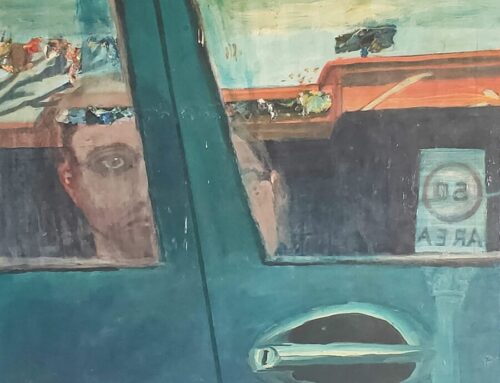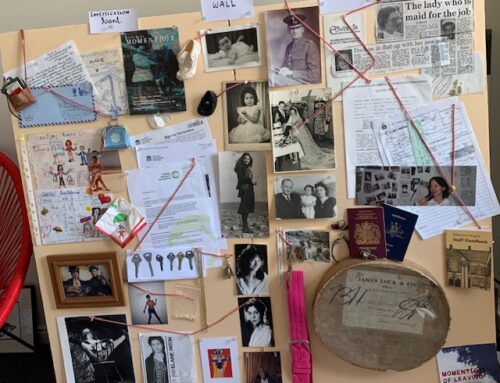Michelle Jersky is the Program Manager: Arts in Health and Community Development at Sydney Children’s Hospitals Network (Randwick). From 2009-2019 she facilitated the Ngala Nanga Mai pARenT Group Program in La Perouse – the program is now coordinated by an Aboriginal Health Worker, previously a group participant. She creates art as part of her professional practice and identity as a woman, mother, and feminist.
Reflecting on the theme of The Making Effect and the role the Arts play on the process of recovery, led me to consider recovery as an act of retrieval. In my work, acts of retrieval (and salvaging) occur in the privileging of silenced voices and the validation of metaphor as a means for thinking about complexity.
My submission for The Making Effect is made up of two trajectories of my art practice, one aligned with my professional practice in the arts in health sector, the other with my inner life. Although these two trajectories are distinct, they are inevitably interconnected.

Never is always an adverb
Text Latin textus (meaning “thing woven”)
Context Latin contextus con (meaning “together”) and texere (meaning “to weave”)
Size: Individual components 148.5 x 210 mm
Installation: Variable
Medium: Ink, watercolour, pigment, thread, graphite, water
Date: 2020
In Never is always an adverb, I worked on a small scale creating individual works that cohere as a series of collective works. Making images allows me to sit, sometimes uneasily, with ambivalence, doubt, and not-knowing and in this liminal space, to encounter exquisite possibility.
Art making came rather late to me, having initially engaged with art through the discipline of Art History with an overarching interest in art theory. I was born in South Africa and my early career was shaped by my work both as a teacher at University and within the Museum context. These formative years were driven by an urgency and optimism for individual, political and social transformation, coinciding fortuitously with the political and social changes that led to the first democratic elections in South Africa in 1994. It is in this context that I started to understand that art as meaning making could be a driver for social change. Interestingly, having immigrated to Australia in 1999, I have landed in a not dissimilarly politically charged space, working for the past decade with Indigenous mothers, children, and families in an urban Aboriginal setting in the Arts in Health program, Ngala Nanga Mai pARenT Group Program. Ngala Nanga Mai means “We Dream” and was named by the participants of the Group to reflect their hopes and aspirations. The program builds on the agency and resilience of the women attending the group and uses art to support maternal mental health and self-efficacy and promote access to health and educational services.
I have increasingly found myself turning to image making as a mechanism for deepening my understanding of my professional work. It provides an opportunity for engaging with the complexities, the silences, the unspoken and the contested that needed to be probed. I created “maps” of the work I perform in Community as part of my reflexive practice to think deeply and coherently about my practice and the ethical ways that it aligns with my values. I use these “maps” to talk about my work with others and in supervision and mentoring sessions. It enables me to represent the rich metaphorical landscape within which I work – it allows me to capture the nuances of my practice in a context where other more linear forms of representation are privileged. The impetus for image making has strengthened over the years and I now value it as an essential and critical part of my work.

The Burden of Proof/ Everything Important is Invisible
Size: Individual panel Height: 400.02cm x Width: 144.98cm
Installation: variable
Medium: Digital Print on fabric
Date: 2009-2020
The work The Burden of Proof/ Everything Important is Invisible is made up of two panels; one being a montage of art works created by mothers attending the Ngala Nanga Mai pARenT Group Program and titled The Burden of Proof, the other a montage of my reflective “maps” titled Everything Important is Invisible.
For me art is a rigorous and embodied intellectual process of understanding, questioning, and making visible the complexity and nuance of lived experience and as such is well-placed to support thinking about complexity in health.

Michelle Jersky

